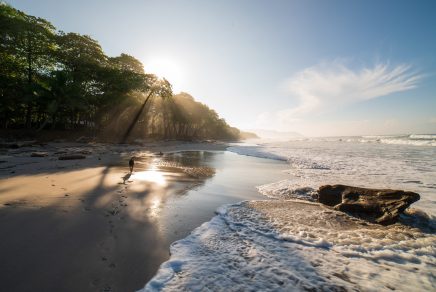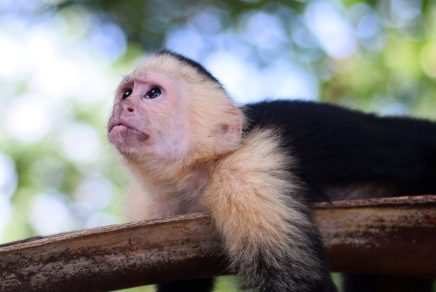Is the caribbean side of Costa Rica worth visiting? This untamed paradise blends lush rainforests, hidden beaches, and lively towns with a rhythm all its own. While the rest of the country teems with visitors, the Caribbean coast invites you to explore quieter escapes, where nature and local people create experiences you won’t find anywhere else.
Fly into San José to begin your adventure. From there, the best way to reach the Caribbean coast is by renting a car or hopping on a shuttle or bus. The scenic 4-5 hour drive to Tortuguero, Puerto Viejo, or Punta Uva winds through misty mountains before revealing the vibrant coast. The journey is more than just a transfer—it’s a preview of the natural wonders ahead.
From wildlife-rich Tortuguero to the relaxed vibe of Puerto Viejo and the pristine sands of Punta Uva, the Caribbean coast of Costa Rica offers adventures as diverse as its landscapes. Savor bold Caribbean food, connect with welcoming locals, and let the region’s laid-back pace reset your soul. Skip the crowds, embrace the wild, and let the Caribbean coast show you Costa Rica’s best-kept secrets.
Meet turtles in Tortuguero
Get ready for an adventure in Tortuguero, one of the most iconic spots on the Caribbean coast of Costa Rica. Accessible only by plane or boat, this remote park immerses you in serene waterways and wildlife galore. Famous for its nesting sea turtles, Tortuguero draws nearly 40,000 turtles from June to October. Watching these majestic creatures lay their eggs is pure magic.
The best way to explore? Hop on a guided boat tour or rent a kayak. Drift through quiet canals framed by towering palms and mangroves. Spot sloths, caimans, and vibrant tropical birds. Back in the town of Tortuguero, mingle with local people, sample Caribbean dishes, or shop for handmade crafts.
Learn to surf along Puerto Viejo’s coastline
If laid-back vibes are your thing, head to Puerto Viejo. This lively town is the heartbeat of the Caribbean coast, where reggae tunes, incredible surf, and a melting pot of cultures collide. The beaches here are legendary, especially for surfers chasing world-class waves. Beginners? Join a lesson and ride your first break on Playa Cocles.
Off the beach, Puerto Viejo buzzes with energy. Wander through colorful streets lined with shops, cafes, and local eateries serving up spicy Caribbean food. Don’t miss a plate of rice and beans cooked in coconut milk—a local staple. And the people? Friendly and always ready to share a story or a dance to live reggae music.
Try scuba diving or snorkeling in Punta Uva’s west coast
Dreaming of untouched beauty? Punta Uva is your escape. Tucked away on the Caribbean coast of Costa Rica, this hidden gem feels like a postcard come to life. Its soft sands, clear waters, and swaying palm trees make it one of the most idyllic beaches in the country. Snorkelers will love exploring the coral reefs just offshore, teeming with colorful fish and marine life.
After a day in the water, take a stroll through the nearby rainforest trails. Keep an eye out for monkeys swinging in the treetops and the occasional sloth hanging out. For a quieter, slower vibe, Punta Uva is unbeatable.
Explore the must see jungle in Cahuita
Escape the crowds and immerse yourself in Cahuita National Park, a crown jewel of the Caribbean coast. Known for its pristine beaches and untouched lush rainforest, it’s a haven for wildlife lovers. Walk the easy trails, where you’ll likely encounter monkeys, raccoons, and curious iguanas.
Feeling adventurous? Snorkel the vibrant coral reefs offshore, home to colorful fish, rays, and even reef sharks. Entry to the park is donation-based on the Cahuita town side, making it accessible for everyone. After your hike, cool off with a swim or simply relax on the beach under the shade of palm trees.
Enjoy one of Costa Rica’s best beaches in Playa Negra
Welcome to Playa Negra, a hidden gem on the Caribbean coast of Costa Rica and a must-visit tourist destination. This striking beach, with its dramatic volcanic black sand, contrasts vividly against the turquoise waves, creating a breathtaking scene that’s uniquely Caribbean.
Thanks to its year-round tropical climate, Playa Negra is perfect for visitors seeking sunny skies and warm temperatures. Swim in the calm shallows, explore tide pools brimming with marine life, or simply relax under swaying palms on this expansive shoreline. Recognized with the prestigious Bandera Azul Ecológica, it’s one of the main attractions in the area, celebrated for its ecological integrity.
Nearby, local cafes serve up bold and flavorful Caribbean cuisine, from spicy jerk chicken to fresh seafood. Arrive early, and you might catch families gathering for traditional beachside barbecues—a slice of Costa Rican culture that makes Playa Negra more than a beach, but an unforgettable experience.
Book a white water rafting excursion on the Pacuare River
Brace yourself for the ultimate adrenaline rush on the Caribbean coast of Costa Rica! White-water rafting down the legendary Pacuare River is pure adventure, with roaring Class III and IV rapids that’ll have your heart pounding and your pulse racing.
Between the surges of wild water, you’ll glide through towering canyons, spot tropical birds soaring overhead, and hear the distant roar of hidden waterfalls. The lush jungle embraces the riverbanks, and if you’re lucky, monkeys might swing by to cheer you on. This epic river journey promises a story you’ll be telling for years!








